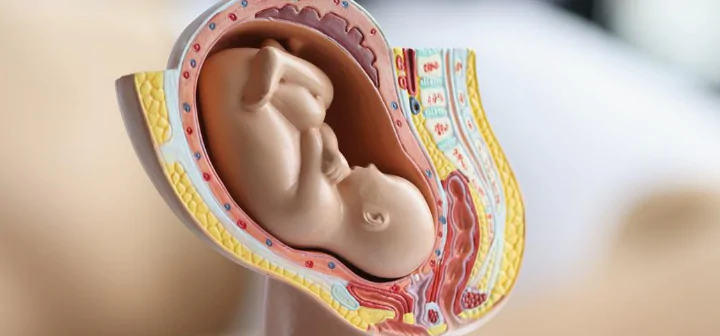Pregnancy brings a whirlwind of emotions, including joy, excitement, and inevitably, worry. Understanding which fears are grounded in reality and which are less likely to happen can help you navigate this special time more calmly. Here, experts weigh in on common pregnancy fears and provide reassuring insights.
1. What If I Accidentally Crush My Baby?
Mom’s Worry:
“I was always afraid I was going to somehow roll onto my stomach while I was sleeping and crush the baby!” — Heather of The Spohrs Are Multiplying
Reality Check:
It’s a common concern, but your body is designed to protect your baby. Early in pregnancy, it’s safe to sleep on your stomach. As your belly grows, it naturally becomes uncomfortable to lie on it for long, so you’ll likely shift positions in your sleep long before you could cause any harm. Dr. Ashley Roman, an ob-gyn at NYU Langone, reassures that your growing baby is well-protected by your body.
2. What If I Ate Something That Will Harm My Baby?
Mom’s Worry:
“I was constantly reading pregnancy books and checking labels to make sure I wasn’t eating natural cheese or nitrates or consuming too much caffeine.” — Shannon
Reality Check:
While it’s essential to follow dietary guidelines during pregnancy, remember that these lists are made with an abundance of caution. The risk of foodborne illness from things like cold cuts or soft cheeses is very low. Rebecca Dekker, PhD, RN, founder of Evidence Based Birth, points out that it’s extremely rare to contract listeriosis, for instance. If you accidentally eat something on the “avoid” list, chances are, everything will still be fine.
3. What If I Lose the Baby?
Mom’s Worry:
“My biggest fear was miscarriage. It was a choking, constant fear.” — Beth Anne of The Heir to Blair
Reality Check:
This fear is understandable but try to take comfort in the statistics. Early miscarriage is relatively common, occurring in about 1 in 10 pregnancies, mostly in the first trimester. However, after 12 weeks, the risk significantly decreases to less than 1%. Dr. Fahimeh Sasan of Kindbody emphasizes that while it’s natural to worry, many pregnancies progress without any complications.
4. What If My Water Breaks in Public?
Mom’s Worry:
“What if my water breaks while I’m driving, shopping, or at a restaurant?” — Erica of Sweet Leigh Mama
Reality Check:
In reality, fewer than 15% of women experience their water breaking before labor starts, and it’s often more of a gentle trickle than a dramatic gush. If it happens in public, it’s likely that no one else will notice. Dr. Sasan reassures that you can handle the situation discreetly.
5. What If I Go into Preterm Labor?
Mom’s Worry:
“I almost lost my twins at 21 weeks and spent five months on bed rest.” — Jennifer
Reality Check:
Preterm labor affects about 1 in 10 pregnancies. While this is a significant concern, many instances of preterm labor do not result in preterm birth. Treatments are available to prolong pregnancy or prepare the baby for an early delivery if necessary. Always contact your doctor if you suspect preterm labor.
6. What If I Pee My Pants in Public?
Mom’s Worry:
“Laughing, sneezing, or coughing would cause bladder leakage. I wore long shirts in case it soaked through.” — Erica of Sweet Leigh Mama
Reality Check:
This is a common issue due to the pressure of the growing uterus on the bladder. To minimize accidents, use the restroom frequently. Post-birth, pelvic floor exercises like Kegels can help regain bladder control. Dr. Sasan advises regular bathroom breaks to keep your bladder empty.
7. What If I’m Not Equipped to Care for a Newborn?
Mom’s Worry:
“I worried I wouldn’t be able to take care of a baby. I’d never changed a diaper before!” — Suzanne
Reality Check:
Newborn care can feel overwhelming at first, but it’s something you’ll learn quickly through experience. Emily Cohen-Moreira, a certified childbirth educator and doula, suggests prenatal education but also assures that practice makes perfect. Many new parents share this fear but soon find their rhythm in caring for their newborn.
Conclusion
It’s natural to stress over various aspects of pregnancy, but it’s important to differentiate between real concerns and those that are less likely to occur. By understanding the facts and preparing accordingly, you can focus more on enjoying this unique and precious time. Always remember to consult with your healthcare provider about any worries you may have—they are there to support you throughout your pregnancy journey.



